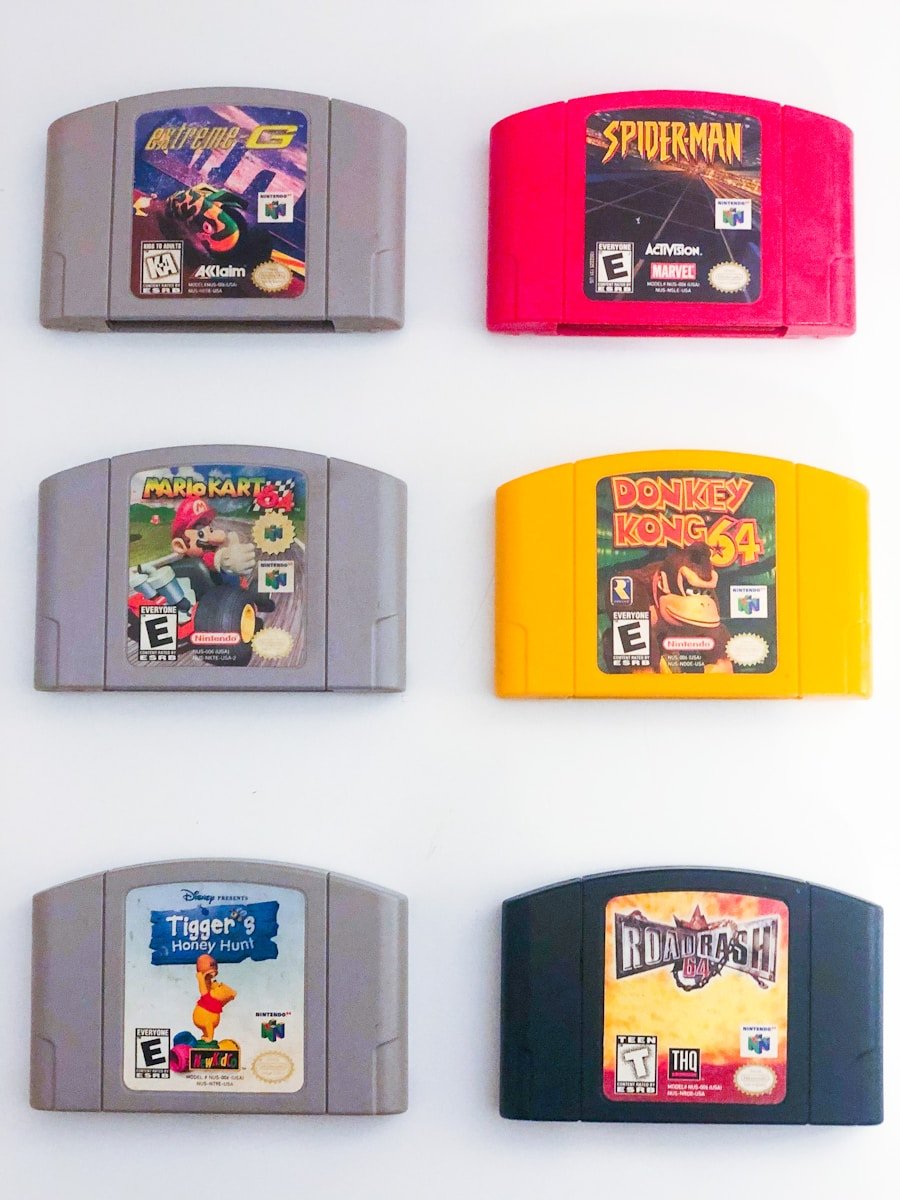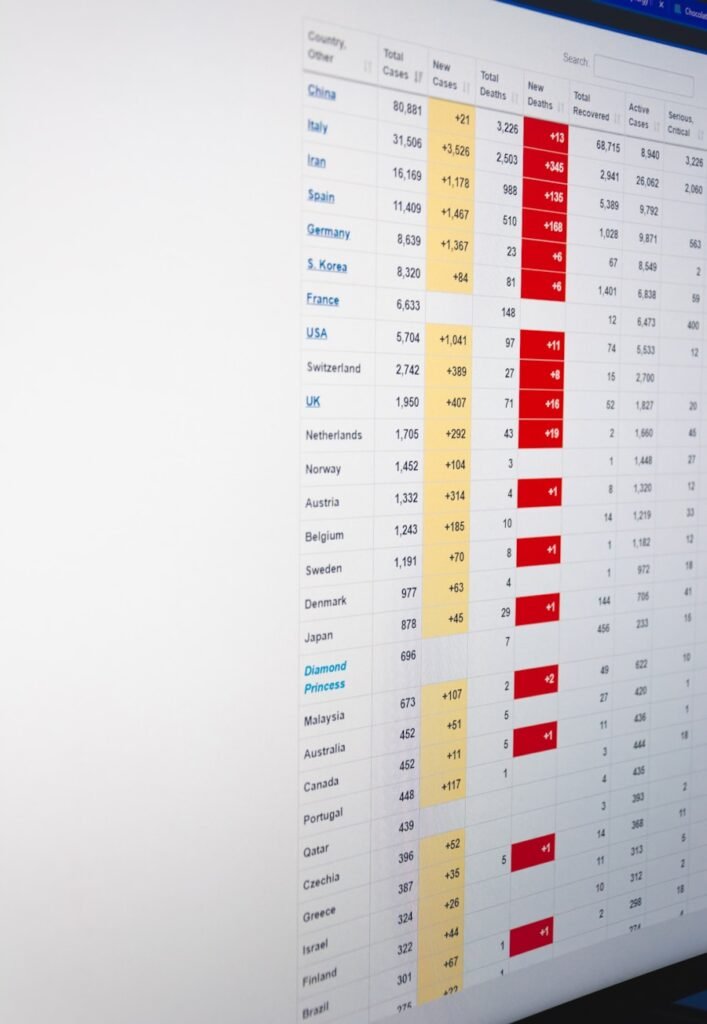Now Reading: Top 10 Best Video Game Soundtracks of All Time
-
01
Top 10 Best Video Game Soundtracks of All Time
Top 10 Best Video Game Soundtracks of All Time

As a passionate gamer, I have always found myself captivated not just by the gameplay but also by the music that accompanies it. Video game soundtracks have evolved significantly over the years, transforming from simple 8-bit melodies to complex orchestral compositions that rival those of Hollywood films. The music in video games serves as more than just background noise; it enhances the narrative, sets the mood, and immerses players in the virtual worlds they explore.
Each note and rhythm is carefully crafted to evoke emotions, making the gaming experience richer and more memorable. The journey of video game music began in the late 1970s and early 1980s, when developers had to work within the limitations of hardware. The iconic chiptunes of that era laid the groundwork for what would become a diverse and expansive genre.
As technology advanced, so did the complexity and depth of video game soundtracks. Today, we see collaborations with renowned composers and orchestras, resulting in soundtracks that are not only enjoyable to listen to while playing but also stand alone as remarkable pieces of art. This article will explore the profound impact of video game music on the gaming experience, the criteria for selecting the best soundtracks, and a curated list of the top ten soundtracks that have left an indelible mark on the industry.
Key Takeaways
- Video game soundtracks play a crucial role in enhancing the overall gaming experience.
- The impact of video game music on the gaming experience is significant, as it can evoke emotions and enhance immersion.
- Criteria for selecting the best video game soundtracks include composition, relevance to the game, and emotional impact on players.
- The top 10 best video game soundtracks of all time include The Legend of Zelda: Ocarina of Time, Final Fantasy VII, Super Mario Bros., The Elder Scrolls V: Skyrim, and Halo: Combat Evolved.
- The timeless appeal of video game soundtracks lies in their ability to create lasting memories and emotional connections for players.
The Impact of Video Game Music on the Gaming Experience
The role of music in video games cannot be overstated. It serves as a powerful tool that shapes how I perceive and interact with the game world. From the moment I start a new adventure, the soundtrack sets the tone, guiding my emotions and reactions.
For instance, a suspenseful score can heighten my anxiety during a tense moment, while an uplifting melody can evoke feelings of triumph after overcoming a challenging obstacle.
Moreover, video game music often becomes intertwined with my memories of specific moments in gameplay.
I can recall times when a particular song played during a pivotal scene, forever linking that melody to my experience. This phenomenon is not just limited to me; many gamers share similar sentiments. The nostalgia associated with certain soundtracks can transport us back to our first encounters with beloved characters or epic battles.
In this way, video game music transcends its role as mere accompaniment; it becomes a vital part of our gaming identity and culture.
Criteria for Selecting the Best Video Game Soundtracks

When it comes to determining what makes a video game soundtrack truly exceptional, several criteria come into play. First and foremost, I consider how well the music complements the gameplay and narrative. A great soundtrack should enhance the emotional weight of key moments while also fitting seamlessly into the overall atmosphere of the game.
For example, if a game is set in a fantastical world filled with adventure, I expect its music to reflect that sense of wonder and excitement. Another important factor is originality and creativity. The best soundtracks often push boundaries and explore new musical styles or techniques.
I appreciate when composers take risks and experiment with different genres, whether it be orchestral arrangements, electronic beats, or even cultural influences that enrich the listening experience. Additionally, memorability plays a crucial role; I find myself drawn to soundtracks that feature catchy themes or motifs that linger in my mind long after I’ve put down the controller. Lastly, I consider the impact a soundtrack has had on the gaming community and its legacy within the industry.
Some soundtracks have become iconic, influencing future composers and setting standards for what video game music can achieve. A truly great soundtrack not only resonates with players but also leaves an enduring mark on gaming history.
Top 10 Best Video Game Soundtracks of All Time
After careful consideration and reflection on my own experiences as a gamer, I have compiled a list of what I believe to be the top ten best video game soundtracks of all time. Each entry on this list has made a significant impact on both my gaming experience and the industry as a whole.
When I think of iconic video game music, “The Legend of Zelda: Ocarina of Time” immediately comes to mind. Composed by Koji Kondo, this soundtrack is a masterclass in thematic composition. The melodies are not only memorable but also perfectly encapsulate the spirit of adventure that defines Link’s journey through Hyrule.
From the serene tones of “Zelda’s Lullaby” to the exhilarating “Gerudo Valley” theme, each piece evokes a sense of wonder and nostalgia. What truly sets this soundtrack apart is its ability to enhance gameplay through interactive music elements. The ocarina itself serves as a gameplay mechanic that allows players to manipulate time and summon various effects through music.
This innovative approach creates an unforgettable synergy between gameplay and soundtrack, making it one of the most celebrated scores in gaming history.
Another standout in my list is “Final Fantasy VII,” composed by Nobuo Uematsu. This soundtrack is renowned for its emotional depth and variety, featuring everything from sweeping orchestral pieces to haunting piano solos. Tracks like “Aerith’s Theme” resonate deeply with players, capturing the essence of love and loss within the game’s narrative.
The music not only enhances key moments but also serves as a character in its own right, shaping how I perceive the story and its characters.
The iconic battle theme alone has become synonymous with epic confrontations in gaming culture.
Uematsu’s ability to blend different musical styles while maintaining a cohesive soundscape is a testament to his genius as a composer.
No discussion about video game soundtracks would be complete without mentioning “Super Mario Bros.” The catchy tunes composed by Koji Kondo have become ingrained in gaming culture since their debut in 1985. The main theme is instantly recognizable, evoking feelings of joy and nostalgia for gamers of all ages. Its simplicity belies its brilliance; the melody captures the essence of adventure and exploration that defines Mario’s journey through the Mushroom Kingdom.
What makes this soundtrack particularly special is its ability to evoke emotions through minimalistic yet effective compositions. Each level features unique themes that reflect its environment, from the cheerful tones of grassy plains to the more ominous sounds found in castles. This attention to detail creates an immersive experience that keeps players engaged and entertained throughout their adventure.
“The Elder Scrolls V: Skyrim” boasts one of the most atmospheric soundtracks I’ve ever encountered in gaming. Composed by Jeremy Soule, this score perfectly captures the vastness and beauty of Skyrim’s open world. The sweeping orchestral arrangements evoke feelings of grandeur and exploration as I traverse snowy mountains and ancient ruins.
Tracks like “Dragonborn” are particularly memorable, blending choral elements with powerful instrumentation to create an epic sense of adventure. What truly stands out about this soundtrack is its ability to adapt to gameplay dynamics. The music shifts seamlessly between exploration, combat, and quiet moments, enhancing my immersion in the world around me.
Soule’s work has left an indelible mark on RPG soundtracks, setting a high standard for future titles in the genre.
Finally, I cannot overlook “Halo: Combat Evolved,” which features an unforgettable score composed by Martin O’Donnell and Michael Salvatori. The soundtrack combines orchestral elements with electronic sounds to create an atmosphere that is both epic and haunting. The main theme is instantly recognizable, evoking feelings of heroism and adventure as I step into the shoes of Master Chief.
What makes this soundtrack particularly impactful is its ability to enhance gameplay moments through dynamic scoring. The music intensifies during combat sequences while providing a sense of calm during exploration phases. This careful balance creates an immersive experience that keeps me engaged throughout my journey across alien worlds.
The Timeless Appeal of Video Game Soundtracks
In conclusion, video game soundtracks hold a special place in my heart as they elevate my gaming experiences to new heights. They are not merely background noise; they are integral components that shape narratives, evoke emotions, and create lasting memories. As technology continues to advance, I am excited to see how composers will push boundaries and explore new musical landscapes within this ever-evolving medium.
The timeless appeal of video game soundtracks lies in their ability to connect with players on a personal level. Whether it’s through nostalgia or emotional resonance, these compositions have become an essential part of gaming culture. As I reflect on my favorite soundtracks, I am reminded of the countless adventures I’ve embarked upon and the unforgettable moments I’ve experienced—all thanks to the power of music in video games.
If you’re a fan of video game soundtracks, you may also be interested in reading about the importance of crafting immersive worlds in video games. This article explores how developers create rich and engaging environments that enhance the overall gaming experience. Check it out here for more insights on this topic.
FAQs

What are video game soundtracks?
Video game soundtracks are the musical compositions and arrangements that accompany and enhance the gaming experience. They are specifically created to complement the gameplay and help set the mood for different levels, scenes, and interactions within the game.
What makes a video game soundtrack great?
A great video game soundtrack is one that effectively captures the atmosphere and emotions of the game, enhances the player’s immersion, and is memorable even outside of the game. It should be well-composed, fitting to the game’s theme, and add to the overall gaming experience.
What are some examples of best video game soundtracks?
Some examples of best video game soundtracks include “The Legend of Zelda: Ocarina of Time,” “Final Fantasy VII,” “Super Mario Bros.,” “Halo: Combat Evolved,” “The Last of Us,” “Undertale,” “Chrono Trigger,” and “Red Dead Redemption.”
How do video game soundtracks impact the gaming experience?
Video game soundtracks can greatly impact the gaming experience by setting the tone, creating emotional connections, enhancing immersion, and providing cues for gameplay. They can also contribute to the overall enjoyment and memorability of the game.
Do video game soundtracks have a significant cultural impact?
Yes, video game soundtracks have a significant cultural impact. They have gained recognition as a form of art and have influenced music, film, and other forms of media. Many video game soundtracks have garnered critical acclaim and have been performed in concerts and orchestral arrangements.


























